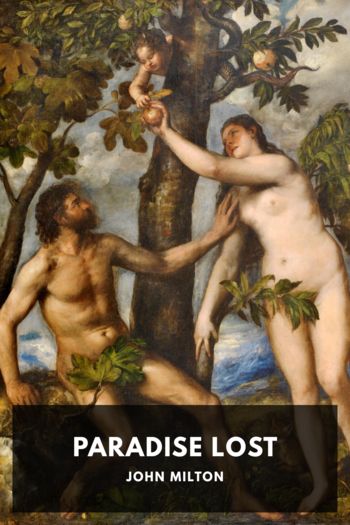Table-Talk by William Hazlitt (best pdf reader for ebooks txt) 📕

- Author: William Hazlitt
Book online «Table-Talk by William Hazlitt (best pdf reader for ebooks txt) 📕». Author William Hazlitt
Mr. Canning somewhere lays it down as a rule, that corporate bodies are necessarily correct and pure in their conduct, from the knowledge which the individuals composing them have of one another, and the jealous vigilance they exercise over each other’s motives and characters; whereas people collected into mobs are disorderly and unprincipled from being utterly unknown and unaccountable to each other. This is a curious pass of wit. I differ with him in both parts of the dilemma. To begin with the first, and to handle it somewhat cavalierly, according to the model before us; we know, for instance, there is said to be honour among thieves, but very little honesty towards others. Their honour consists in the division of the booty, not in the mode of acquiring it: they do not (often) betray one another, but they will waylay a stranger, or knock out a traveller’s brains: they may be depended on in giving the alarm when any of their posts are in danger of being surprised; and they will stand together for their ill-gotten gains to the last drop of their blood. Yet they form a distinct society, and are strictly responsible for their behaviour to one another and to their leader. They are not a mob, but a gang, completely in one another’s power and secrets. Their familiarity, however, with the proceedings of the corps does not lead them to expect or to exact from it a very high standard of moral honesty; that is out of the question; but they are sure to gain the good opinion of their fellows by committing all sorts of depredations, fraud, and violence against the community at large. So (not to speak it profanely) some of Mr. Croker’s friends may be very respectable people in their way—“all honourable men”—but their respectability is confined within party limits; everyone does not sympathise in the integrity of their views; the understanding between them and the public is not well defined or reciprocal. Or, suppose a gang of pickpockets hustle a passenger in the street, and the mob set upon them, and proceed to execute summary justice upon such as they can lay hands on, am I to conclude that the rogues are in the right, because theirs is a system of well-organised knavery, which they settled in the morning, with their eyes one upon the other, and which they regularly review at night, with a due estimate of each other’s motives, character, and conduct in the business; and that the honest men are in the wrong, because they are a casual collection of unprejudiced, disinterested individuals, taken at a venture from the mass of the people, acting without concert or responsibility, on the spur of the occasion, and giving way to their instantaneous impulses and honest anger? Mobs, in fact, then, are almost always right in their feelings, and often in their judgments, on this very account—that being utterly unknown to and disconnected with each other, they have no point of union or principle of cooperation between them, but the natural sense of





Comments (0)